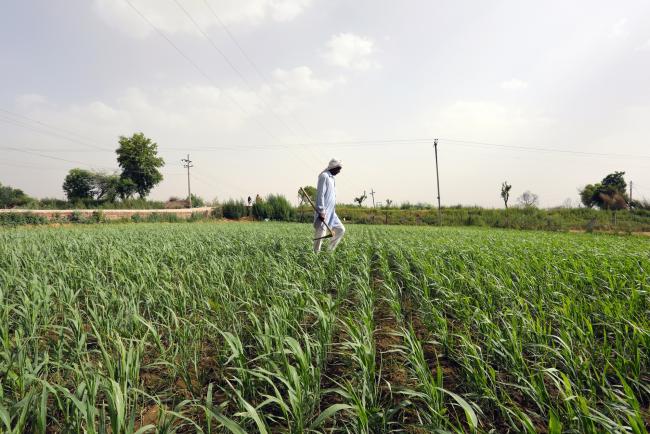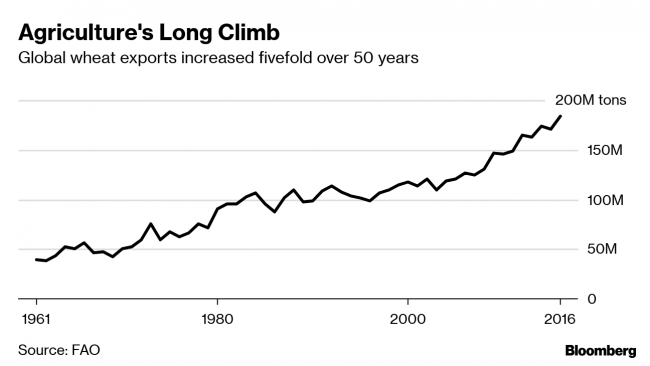(Bloomberg) -- Agricultural commodity traders will be among the winners as global temperatures warm so long as policy makers ease trade rules to allow them to adapt the food supply to climate change.
That’s the conclusion of a group of American and European climate scientists and resource economists who studied how higher temperatures will impact food and water supplies. Over the next three decades, a hotter environment means international trading volumes for grains including wheat, corn and rice will rise as much as a fifth, with landmass the size of Egypt entering new cultivation, according to their report published this week.
“The only way to protect flows and food security is to make trade as free as possible between countries with abundant water supplies and those facing scarcity,” said Amanda Palazzo, an economist at the International Institute for Applied System Analysis who co-authored the peer-reviewed report.
The findings, published in Axel Springer SE’s journal “Nature Sustainability,” underscore how shifting weather patterns will upend the fortunes of farmers worldwide, enriching some and making depressing yields for others. Large swaths of cropland across of China, India and the Middle East that depend on irrigation will find stiffer competition for water as the climate grows hotter. Landholders in South America and southeast Asia where rains are likely to increase are likely to see a boom in cultivation, according to the report.
The amount of land being farmed needs to increase by about 50%, or 100 million hectares (247 million acres), by 2050, the scientists said. They modeled climate, land and water data to reach the conclusions. While that massive agricultural expansion could double global food production and ensure the world’s population is fed, it will need policy makers to allow trade flows to make sure those commodities reach the right places.
That finding rubs against the grain of the current political atmosphere, with the U.S. and China locked in a trade war and singling out commodities for higher tariffs. President Donald Trump has said the U.S. will benefit from higher tariffs on imported products of all kinds, something the researchers dispute.
“Increase in trade and trade liberalization is often mentioned as having a negative impact on the environment and on access to food by disadvantaged communities,” the researchers wrote. “But our results show that an increase in global trade can also help meet future sustainable development goals in terms of food security and water preservation.”
Failure to ease trade friction could provoke dire consequences by 2050. People at risk from hunger would rise by a fifth, adding about 160 million people to the list of those facing famine, unless there’s a carefully designed systems that balances climate change and the economy, according to a companion report published in the same journal.

